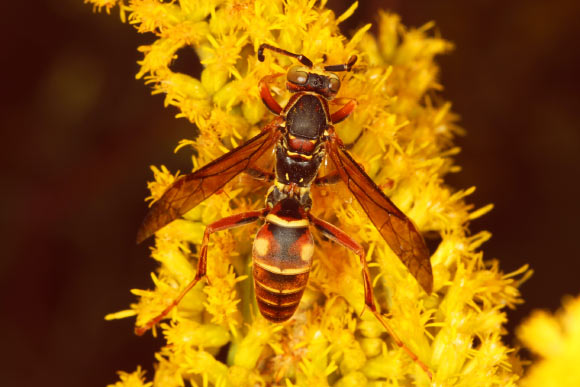A team of researchers has sequenced and analyzed the genomes of Polistes fuscatus, a species of paper wasp that has uniquely evolved visual individual recognition abilities, and two closely related species lacking facial recognition, Polistes metricus and Polistes dorsalis. Their findings suggest Polistes fuscatus‘ increasing intelligence provided an evolutionary advantage and shed light on how intelligence evolves in general, which has implications for many other species — including humans.
“The really surprising conclusion here is that the most intense selection pressures in the recent history of these wasps have not been dealing with climate, catching food or parasites but getting better at dealing with each other. That’s pretty profound,” said Professor Michael Sheehan, a researcher in the Department of Neurobiology and Behavior at Cornell University.
Many vertebrate animals can recognize individual faces, at least in some circumstances, but among insects, facial recognition is quite uncommon.
Professor Sheehan and colleagues explored how and when this ability evolved by analyzing patterns of genetic variations within species.
The few species of insects that can recognize faces share one trait: communal societies with multiple queens.
In communal groups with a single queen, like honeybee colonies, the roles are clear, and each individual knows its place.
But paper wasps may have five or more queens in one nest and facial recognition helps these queens negotiate with one another.
While the researchers focused on paper wasps, the primary question they wanted to answer was how intelligence evolves in general.
“Our finding indicated that cognitive evolution is not necessarily incremental,” Professor Sheehan said.
“There are mutations happening that cause big shifts.”
“This suggests the possibility that rapid adaptation of cognitive ability could have been important in other species as well, like language in humans.”
The results appear in the Proceedings of the National Academy of Sciences.
_____
Sara E. Miller et al. Evolutionary dynamics of recent selection on cognitive abilities. PNAS, published online January 24, 2020; doi: 10.1073/pnas.1918592117








